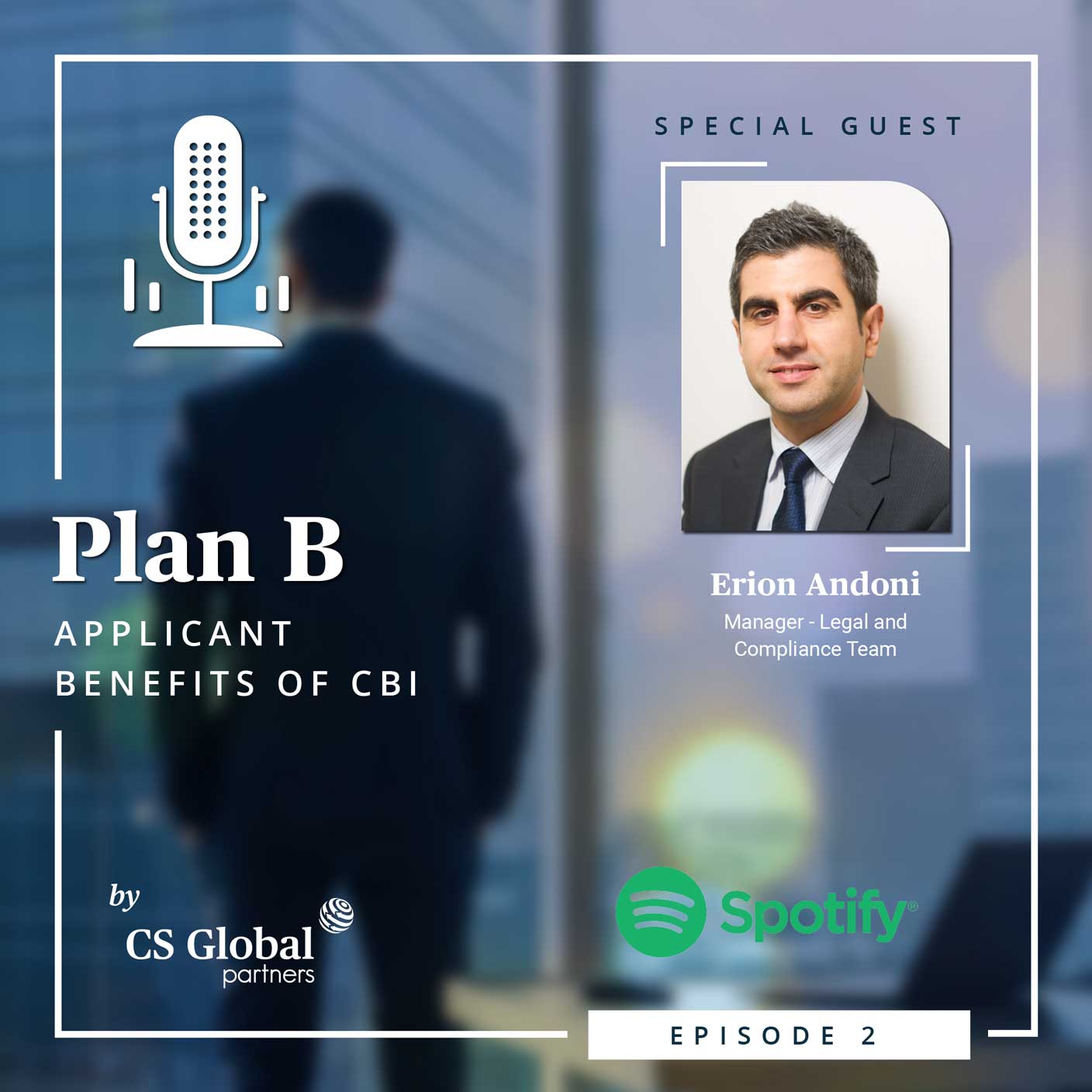
As an increasing number of nations react to the COVID-19 pandemic by closing their borders to almost everyone except citizens, investors across the globe have even more reason to realise the value of second citizenship as a “Plan B” against even the most unexpected of crises. CS Global Partner’s Erion Andoni discusses the benefits that can be obtained by a person who successfully applies for citizenship by investment in St Kitts and Nevis and Dominica.
Aisha Mohamed: What would you say are some of the major benefits of attaining a second citizenship in St Kitts and Nevis?
Erion Andoni: There a number of benefits associated with obtaining citizenship of St Kitts and Nevis. It is useful to separate these into two categories: processing benefits, and benefits obtained upon receipt of citizenship.
The main processing benefits we see in St Kitts and Nevis are the benefits of legacy – the St Kitts and Nevis Citizenship by Investment Programme has been in existence for over 30 years and it is well-established. This means the St Kitts and Nevis Citizenship by Investment Unit is highly efficient and responsive. The Unit has seen myriad family scenarios, knows how to deal with each situation, and does so quickly.
Applicants can expect an answer to their application in 3 months, or they can choose to pay for St Kitts and Nevis’ Accelerated Application Process (AAP), which hastens the process to 60 days. St Kitts and Nevis is the only Citizenship by Investment jurisdiction in the world to offer an AAP.
The most notable benefits obtained upon receipt of citizenship are the ability to live and work in St Kitts and Nevis, the ability to hold dual citizenship, and the ability to pass citizenship down to the next generation. Another significant benefit is the extensive visa-free travel options (over 150 countries) available to Kittitians and Nevisians.
Also Read: St Kitts and Nevis Ranked Best and Fastest CBI Programme
AM: How about Dominica? Are the advantages of attaining a second citizenship overall similar to those of St Kitts and Nevis? What are some of the differences?
EA: There are some similarities to St Kitts and Nevis. For example, Dominica also has a very long history of running a citizenship by investment programme, and its Citizenship by Investment Unit is also one of the fastest and most efficient.
One of the main differences presents itself to real estate applicants. Dominica has a limited number of real estate options that have been pre-approved by the Government for Citizenship by Investment. There are pros and cons to this. The obvious pro is that a lot more investment is received by each real estate project, ensuring there is a greater chance of project success and therefore return on the investment. The con is fewer choices for the investor. In Dominica, you must choose between a shortlist of eco-friendly, luxury resorts.
AM: One of the main benefits of second citizenship in the Caribbean and a major attraction for investors of Citizenship by Investment has always been the visa-free and visa on arrival advantages of holding a St Kitts and Nevis or Dominica passport. Passports issued by St Kitts and Nevis and Dominica allow entrance into the world’s biggest business hubs like Singapore, Dubai, and the Schengen Area. However, given the current situation, physical mobility seems quite impossible. How do you think Citizenship by Investment’s travel advantage can still be beneficial for investors in a time with so many travel bans and lockdowns?
EA: The current COVID-19 crisis is a temporary one. Global mobility will remain hugely important in the long term. Additionally, while short-term visa-free travel may be limited in this time of crisis, it is important to remember that citizens are able to travel to their country of citizenship
Also Read: Visa-Free Travel with Citizenship by Investment
AM: Recently, both St Kitts and Nevis and Dominica announced that they would be accepting online submissions. What does this mean for investors?
EA: It means that they can prepare copies of the many documents they need to present in order to obtain citizenship and send them to the Unit so that application processing can begin. In other words, the Unit will be able to kickstart its due diligence.
However, it is important to note that approvals in principle will not be issued until all physical documents are received by the Unit. This is because the Unit needs to make sure that documents are either originals or true copies certified by a notary. These copies need to have a number of stamps, including a notarial stamp and a legalisation stamp (commonly in the form of an Apostille).
AM: Have you found clients have been expressing anxiety with respect to Citizenship by Investment now that many businesses are suffering, and the global economy has partially come to a halt?
ERION: Many investments have become insecure in this time of crisis, and, unfortunately, we will see some businesses fail. However, Citizenship by Investment continues to be a solid investment, because if you are an applicant who raises no due diligence concerns and you make the minimum investment required by law, you are certain to make a return on your investment – i.e. obtain the second citizenship you want.
Also read: Immunity Passports May Not Be the Answer, But Second Citizenship Can
AM: In your expert opinion, what would you say to those on the fence about making the investment towards CBI?
EA: The name of this podcast is a strong reminder of what makes Citizenship by Investment so crucial – it is a useful Plan B. I am sure that, right now, many would rather be in Dominica and St Kitts and Nevis, with their strong health institutions, than in several other countries. You never know what the future may bring, but it is certainly best to be as prepared as possible for all eventualities.
This interview has been edited and condensed for length and clarity.